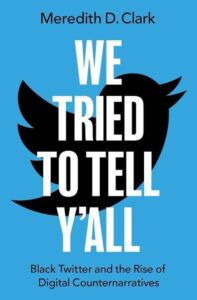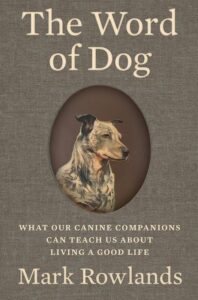
Our smorgasbord of sumptuous reviews this week includes Hamilton Cain on Aria Aber’s Good Girl, Gerald Early on Zora Neale Hurston’s The Life of Herod the Great, J Wortham on Meredith D. Clark’s We Tried to Tell Y’all, Becca Rothfeld on Mark Rowlands’ The Word of Dog, and Olivia Laing on Tom Lamont’s Going Home.
“Once in a blue moon a debut novel comes along, announcing a voice quite unlike any other, with a layered story and sentences that crackle and pop, begging to be read aloud. Aria Aber’s splendid Good Girl introduces just such a voice, chronicling a young Afghan German woman’s misadventures among Berlin’s night clubs and drug dens as she plunges into a volatile romance with an expatriate American writer. The book’s not without wobbles, but Aber, an award-winning poet, strikes gold here…
…
“Their intimacy shades purple amid blasts of obsession and tenderness, yet Aber nimbly pulls off the Rimbaud act. Good Girl, then, is a bildungsroman, gorgeously packed with Nila’s epiphanies on literature and philosophy, a tale of seductive risks and the burdens of diaspora. Kafka’s ‘Metamorphosis’ hovers over Good Girl as its heroine undergoes a radical transformation. Marlowe considers himself more than just a lover; he’s also a mentor, gently steering her toward her own desires and how to express them through the art she makes (and indulging in a bit of mansplaining). She embraces and resents him, a 21st century repackaging of Romeo and Juliet, and like Shakespeare’s characters, the duo proceed to their doom. Their connection unravels.
…
“Like Nila, Aber was raised in Berlin, speaking Farsi and German. Ultimately, the divide within Nila reflects the growing chasm between east and west; she rightly perceives a spike in xenophobic nationalism across Europe and the United States. Good Girl views our current unrest through an inclusive prism: As the novel concludes, Nila visits an international cemetery, studded with headstones of Turks and Muslims, Germans and Jews. Literature, Aber suggests, may not only bridge warring peoples, but also bind our personal conflicts.
‘On a molecular level, I believed, I comprehended what he wrote, even why he turned Gregor into a giant bug,’ Nila observes of Kafka’s canonical work. ‘Who would understand the perils of a man trapped in his childhood room in unhuman form more than an Afghan girl trying to live?'”
–Hamilton Cain on Aria Aber’s Good Girl (The Los Angeles Times)
“Clearly, in writing novels about Moses and Herod, Hurston was attracted not only to strong, charismatic male leaders but also to how a subordinated group in thrall to an empire (first Egypt, then Rome) cohered and fought to maintain itself. A Black American like Hurston might have found this aspect of Jewish history particularly absorbing as an analogy to Black people’s fight for their self-integrity living under a White hegemony.
…
“The Life of Herod the Great reads like the unfinished, damaged novel that it is. Structurally and mechanically, it needs a lot of work, despite being informed by deep research. The dialogue is frequently stilted, and the characters never become fully realized actors; Hurston steers and explains them too much. The accounts of Herod’s military campaigns feel repetitive. There are moments when Hurston seems to be using Herod as a mouthpiece or model for her own views.
It is far from Hurston at her best, but it is nonetheless engrossing because of her unbridled enthusiasm for her subject, even when her passion works against her. She displays a tendentiousness that makes her characters less complex than they should be in fairness to the history. Her belief in the work is apparent and, frankly, breathtaking; for readers interested in Hurston, that belief can carry you along for a while, but not forever.”
–Gerald Early on Zora Neale Hurston’s The Life of Herod the Great (The Washington Post)

“Although it was all so chronologically recent—and although some denatured forms of it still exist—Clark noticed that young people around her seemed to be, already, forgetting the glory days of Black Twitter, and their importance. Often when an academic writes about a cultural phenomenon that exists outside the mainstream consciousness, there’s an attempt to explain it as a means to legitimize it. Clark, instead, memorializes Black Twitter, hoping to prevent further perversion of Black innovation, Black language, culture and style. (Just look at the complete and utter devolution of ‘woke.’)
Black Twitter’s most lasting legacy, according to Clark, is pulling off a ‘full-scale revolution’ in how American news media reported on Black people—which she correctly argues has a direct correlation to how people perceive the value of Black life and govern it. She intends the book as a warning: To continue on in the tradition of white media elites will lead to a further disenfranchisement of nonwhite people (and working-class white people, too) and will lead to the collapse of the country. Her warning has prescience: It’s here.
…
“Black Twitter has waned, but it is far from over. The conditions that created the need for Black Twitter have not dissipated; if anything, they are only intensifying. What Clark carefully and lovingly outlines is too necessary not to repeat itself. It was a rare moment in history to be in control of the narratives created about us. And at least for now, there’s a blueprint to know how to start again when the time is right.”
–J Wortham on Meredith D. Clark’s We Tried to Tell Y’all: Black Twitter and the Rise of Digital Counternarratives (The New York Times Book Review)

“The Word of Dog contains a smattering of memoir and hefty doses of cognitive science, but it is primarily a work of philosophy. By meditating on the many beloved dogs with whom he has shared his life, Rowlands sketches their profoundly alien and distinctively ebullient way of navigating the world. There are already a number of books about canine cognitive capacities—among them The Genius of Dogs and What It’s Like to Be a Dog— but this is the only one I’ve read about canine agency. In The Word of Dog, Rowlands asks not just whether our dogs can experience love (yes) or guilt (doubtful…) but whether they are free (in his view, yes) and moral (in his view and mine, emphatically so).
Of course, they are not free and moral in quite the same way we are, and Rowlands’s book is therefore as much an inquiry into the nature of humanity as it is a celebration of dogs and their virtues. It does not, however, paint a very flattering portrait of dogs’ handlers. We have a tendency to favor our own species, seeking evidence of our superiority at every turn, but Rowlands emphasizes that The Word of Dog is ‘not a book about the benefits of being human; rather, it is a book about its drawbacks.’
…
“Dogs also prompt us to revise our conception of meaning. In the face of the realization that many of our pursuits are repetitive and serve no ends beyond themselves, Rowlands writes, we can either ‘deny that our lives are Sisyphean, or we can deny that a Sisyphean life is necessarily a meaningless one.’ Dogs opt for the second strategy, and they do so with an exuberance and aplomb we could never muster, exhibiting a kind of amor fati.”
–Becca Rothfeld on Mark Rowlands’ The Word of Dog: What Our Canine Companions Can Teach Us About Living a Good Life (The Washington Post)
“Téo’s task is to manage this overload of responsibility, to winkle out its pleasures on the fly. And what pleasures they are. It’s rare to read something that captures with such unsentimentality a child’s range, their rapidly shifting obsessions, the quiddities of their language, their cunning wiles, the ‘busy managerial patter’ of their games.
For years I’ve been keeping a running tally of convincing children in adult novels. Fox-obsessed Max in Esther Freud’s Peerless Flats. Chatty, dyslexic Leo in AS Byatt’s Frederica Quartet. The preternaturally articulate Thomas in Edward St Aubyn’s Mother’s Milk. Joel, with his ‘unreasonable eyes, toad’s eyes … just gorgeous,’ is fully singular, tightly observed, expanding daily. He confides a secret about himself: ‘I grow.’
…
“The clockwork propulsion of events, and their domino tumble into crisis, feels a touch too authorially engineered. What saves the novel from being forced or formulaic is the depth of Lamont’s engagement with his characters, and especially his capacity to situate them in a lived, firmly dimensional world.
…
“I can’t say I loved the tidiness of the ending, but I’ve read Going Home twice now and I still don’t feel as if I’ve tapped its power. Children seem to be more alive than adults, keener, less jaded, and this novel feels the same, pepped up and gorgeous, just bristling with life.”
–Olivia Laing on Tom Lamont’s Going Home (The Guardian)

